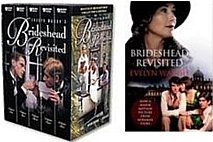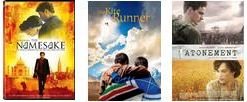 A little fun: have you noticed—pretty hard not to—all the books entitled Somebody’s Daughter? Recognize any of these?
A little fun: have you noticed—pretty hard not to—all the books entitled Somebody’s Daughter? Recognize any of these?
The Abortionist’s Daughter The Memory Keeper’s Daughter
The Bonesetter’s Daughter The Optimist’s Daughter
The Courtesan's Daughter The Pirate’s Daughter
Galileo’s Daughter Vermeer’s Daughter
Just how many daughterly titles are out there? Turns out, about 360—titles like “Somebody’s Daughter” or “Daughter(s) of the Something-or-Other.” Here's the full list.
So why this fixation on female offspring—a marketing scheme to appeal to women? But one title is nearly 200 years old. It also turns out that Balzac, Dumas, Hawthorne, D.H. Lawrence, Orwell, Walter Scott, and Zola were in on it, too. Did they even have marketing firms back then?
D.H. Lawrence’s short story, “The Horse Dealer’s Daughter,” suggests the young woman of the title inherited her father’s personality and will dominate her fiance as her father did his horses—a title that suggests a belief in familial determinism. (See LitCourse 9.)
Okay, one down, but that leaves 359 titles unexplained. Any theories?
 I revisited Brideshead again last week—rereading the book after 25 years—because something about the newest film didn't sit right.
I revisited Brideshead again last week—rereading the book after 25 years—because something about the newest film didn't sit right.
There’s also the 1981 version with Jeremy Irons, the sumputuous mini-series that clocks in at 11 hours. Why remake a perfectly fine wheel? Well, after my marathon reread, I’m even more curious.
I actually like the new 2008 version, primarily because of the performances. They’re terrific! But the two-hour format distorts the storyline and the work’s ultimate meaning.
The biggest problem is the timing of Julia and Charles’s love affair. In the book, the two don’t fall in love until they meet onboard the ship—10 years after they first met at Brideshead. The new film has them fall in love early on—at Brideshead. It’s a serious misreading because it leads to the premise that Sebastian’s unrequited love for Charles is what sucks him into a self-destructive vortex. His decline is far more complicated—and goes to the heart of the book.
The story appears, on the surface at least, to be critical of religion, certainly Catholicism. But the book’s chapter titles provide a real tip-off: “Et In Arcadia Ego” and “The Twitch Upon the Thread.” The novel has to do with the operation of divine grace in the world:
an invisible line which is long enough to let [ the unrepentant ] wander to the ends of the world and still bring him back with a twitch upon the thread.
Willful disobedience gets both Charles and Sebastian thrown out of Arcadia—the paradise / Eden that was Brideshead during the summer of 1923. Only after suffering and disillusionment do the two feel the “twitch upon the thread”—even Charles does at the novel’s end, though it’s unclear whether he’s actually reeled in.
For Book Clubs
Why not revisit Brideshead by reading Waugh...then seeing the 2008 film version? Or for real die-hards watch the 11-hour 1981 version! Choose a weekend—and pack a sleeping bag and pillow! Invite me, too.
 Another book? Philip Roth is 75! Why doesn’t he schlep himself off to Florida, put his feet up, and collect his royalties?
Another book? Philip Roth is 75! Why doesn’t he schlep himself off to Florida, put his feet up, and collect his royalties?
It would be the decent thing to do—it’s what the rest of us would do.
Noooooo...... he’s still plugging away, churning out one superb book after another. His latest is Indignation. “Enough already,” as Portnoy’s mother would say.
I’ve come to Roth late, and now I’m wondering why I deprived myself for so long. If you haven’t read him, run to the nearest library or bookstore. Yes, he can be long-winded, over-the-top, tasteless, and self-absorbed, but he’s also brilliantly inventive, side-splittingly funny, and a dazzling storytelller. Oh, and sexually explicit (hilariously explicit, if you’re up for that...if you’re not, please beware).
Where to start? I can’t direct you, but here’s an outline of his oeuvre:
Philip Roth
- Portnoy’s Complaint—a Jewish man-child’s coming-of-age. (The funniest book ever written.)
- The “Zuckerman novels”—9 in all. In the first 4 (referred to as “Zuckerman Bound”) Nathan Zuckerman, author of the outrageous Carnovsky and stand-in for Roth and Portnoy’s Complaint, is the protagonist. In the last 5, an older Zuckerman observes more than participates in the stories he tells.
- The “Kepesh trilogy”—3 novels that revolve around David Kepesh, an insecure and sexually fixated literature professor.
- The “Roth novels”—3 semi-autiobiographical (or not) novels.
- Other novels—another 9—include Goodbye, Columbus; Letting Go; When She Was Good; Our Gang; The Great American Novel; My Life As a Man; Sabbath’s Theater; Everyman; and the most recent, Indignation.
- Oh, yes—another novel is in the works, The Humbling, due out in 2009.
- Non-fiction and short stories—had I mentioned that?
Also head to SCREEN THOUGHTS with Hollister and O'Toole to listen to the podcast review of the 2016 Sundance film version of, Indignation. (The review starts at point 11:04 after a tribute to famed writer-director-producer Garry Marshall.)
Where do critics stand? He’s been called “the single best writer of fiction of the past 25 years.” * And while all critics have their Roth favorites, most seem to agree that the following are his best (click on titles to see our Reading Guides):
- Portnoy’s Complaint (1969)
- Zuckerman Bound (1979-85)
- Operation Shylock (1993) – Roth Novel
- American Pastoral (1997) – Zuckerman Novel
- The Human Stain (2000) – Zuckerman Novel
- The Plot Against America (2004) – Roth Novel
- Sabbath’s Theater (2005)
- Everyman (2006)
- Exit Ghost (2007) – Zuckerman Novel
* A.O. Scott. “In Search of the Best.” New York Times Book Review , 5/21/2006.
 Back to Joshua Henkin—this is my 2nd post devoted to his terrific essay about book clubs. Henkin, author of Matrimony (now in paperback), speaks with book groups around the country. Here’s a question he raises:
Back to Joshua Henkin—this is my 2nd post devoted to his terrific essay about book clubs. Henkin, author of Matrimony (now in paperback), speaks with book groups around the country. Here’s a question he raises:
Where are all the men? . . . My experience has been that women read fiction and men read biographies of civil war heroes. And women join book groups and men don’t. Yet those few co-ed book groups I’ve attended have been among the most interesting. And if, as seems to be the case, book groups have led to an increase in reading in a culture that otherwise is reading less and less, it would be nice to see more men get in on the act.
Books on the Brain, April 29, 2008
Henkin is right: I read somewhere that 75-80% of book clubbers are women—why is that figure so lopsided? Why do women join book clubs and men don't? And for those few co-ed clubs to which Henkin refers, are the reading lists different from all-women clubs? (See my later post on this very subject—Do Real men join book clubs?—11/7/08.)
Questions for Book Clubs
1. For women’s clubs: do you ever consider inviting men to join your club?
2. How do you think adding men might change your book choices and discussions?
3. Same questions for all-men clubs, too. I know there are a few all-male clubs out there.
See my three other posts based on Joshua Henkin’s book club essay:
1. Book Clubs—smarter than critics?
2. I Laughed! I Cried! — how do we talk about books?
3. Echo Chambers—are we all reading the same books?
 Am I the only person in the US who hasn’t seen Mama Mia? Probably. I’m so late on the uptake. Worse, yesterday I finally got around to seeing The Namesake, based on Jhumpa Lahiri’s novel. Better late than never.
Am I the only person in the US who hasn’t seen Mama Mia? Probably. I’m so late on the uptake. Worse, yesterday I finally got around to seeing The Namesake, based on Jhumpa Lahiri’s novel. Better late than never.
Sometimes a movie is just better than its book. I liked Lahairi’s novel. But I think (at least for now) she’s a better writer of short stories, which is actually a harder craft. (Faulkner claimed short stories to be more difficult than poetry.)
Namesake, The Film is terrific. By nature, it lacks the book’s interiority (and therefore some of its depth and insights), but that may be why I liked the movie’s characters better, particularly Gogol, who isn’t as alienated or self-absorbed as he is in the novel. Granted, the movie doesn’t capture Ashima Ganguli’s isloation from American culture as well as the book, nor her dismay at losing her children to its influence. But I just think the film holds together better. (See our Reading Guide for The Namesake.)
On the to The Kite Runner. Beloved as the book is, it has some structural problems, especially toward the end when Ahmed meets his nemisis 15 years later in Afghanistan. That whole section felt tacked on, manipulative, over-the-top. Again, the film version was better, somehow managing to handle the rescue section with more elegance and power. Same with the final kite flying scene on the California beach. (See our Reading Guide for The Kite Runner.)
And finally Atonement. Wow to both book and film. But I like the film’s ending better than the book’s. The whole birthday party scene (with Briony’s secretiveness about her to-be-published-book and the bad buys sitting right there) feels contrived. But Vanessa Redgrave’s beautifully modulated monologue somehow lent the film more credibility and power, to say nothing of stature. It took my breath away. (See our Reading Guide for Atonement.)
Book Club Questions
- What books have you read that also have film versions? Which did you prefer?
- Does your club show film clips during discussions? Do you talk about a book vs. film version?
